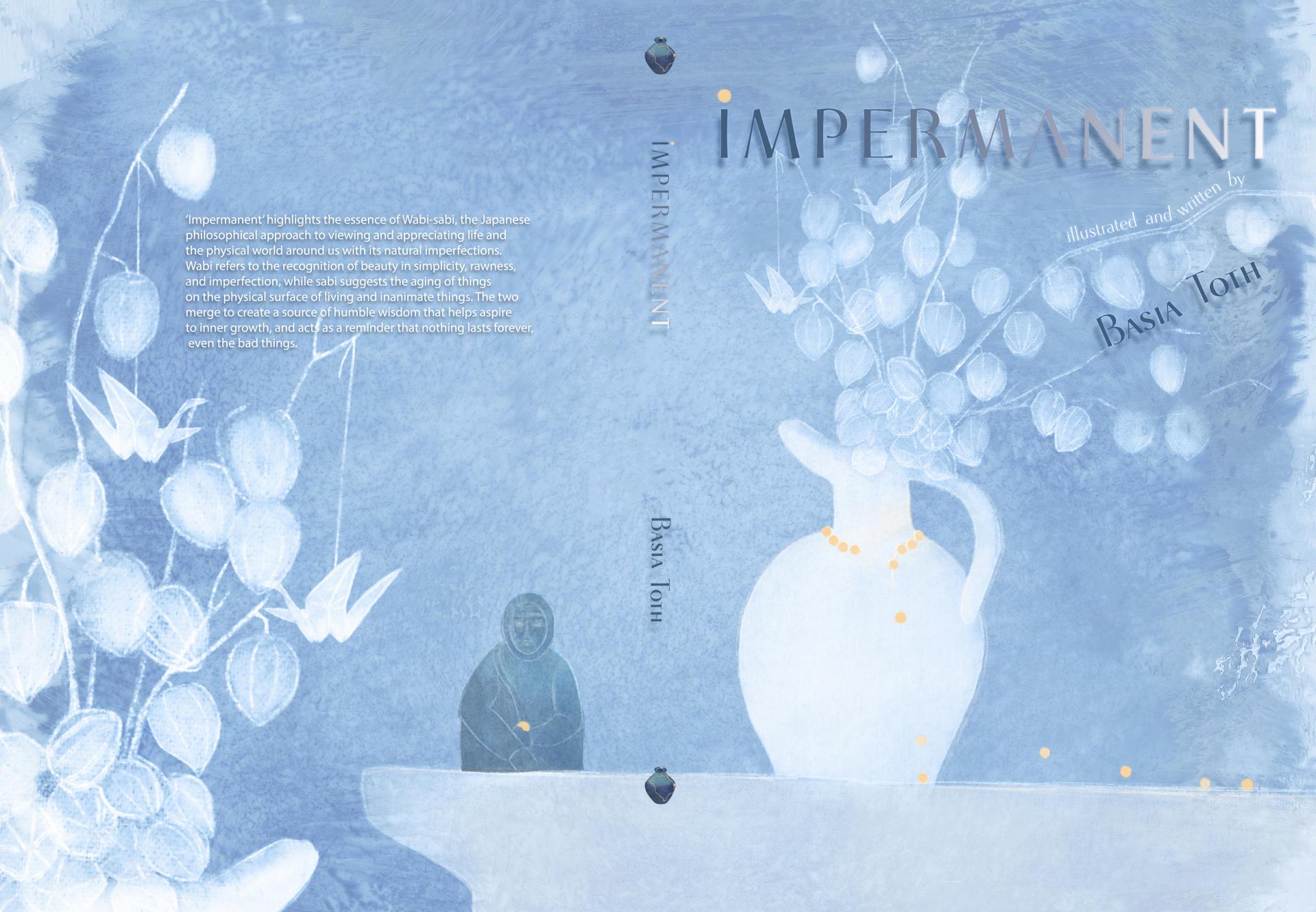My project set out to explore unpleasant human experiences, often resulting in second-guessing and carrying emotional burdens. These may leave invisible marks and bad memories we often oppress, or personal traits we despise and find difficult to live with. I aimed to depict flaws and unpleasant memories as devices to aspire to one’s progression and growth through the alternative Japanese philosophy of Wabi-sabi (a view centred around the acceptance of transience and imperfection), and Kintsugi (the traditional art of repairing ceramics with gold while strengthening our historical bond with an object and embracing its imperfections). The topic is rooted in my interest in human relationships and associated narratives with sentimental objects. In my publication, ‘Impermanent‘, I aimed to incorporate mundane tactile objects that people once used and perhaps considered precious. I stumbled upon some of these objects through my research visits to museums. I felt that origami paper objects may also illustrate the trait of human endurance and resilience vital for progression. Paper becomes strong when folded and shaped into an object. Both categories of objects were of help to enrich the message of accepting the imperfect nature of humans through gratitude and the embrace of the mundane and the intangible moments that are fleeting in life.
The publication is aimed at adults between 23-35 years because this is when our healthy sense of self strengthens, our priorities, values, and morality are established, and our identity stabilises.







